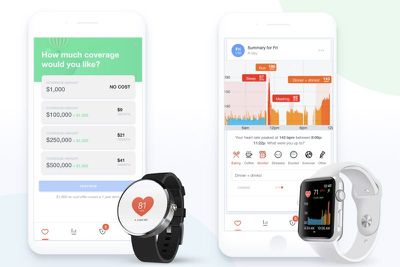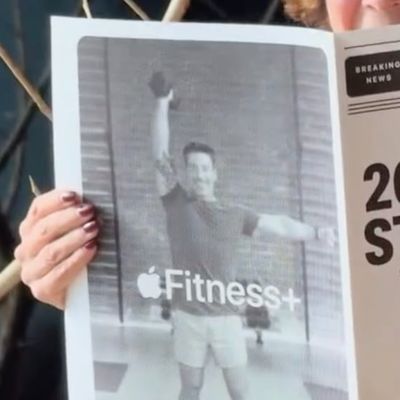Apple Watch app Cardiogram, which is designed to provide you with more information on the heart rate readings obtained from the Apple Watch, is teaming up with Greenhouse Life Insurance Company and Amica Life to offer up to $1,000 worth of accidental death insurance to Apple Watch owners.
Cardiogram users can get the deal starting today through the Cardiogram app for iOS. The offer is available in Wisconsin, Arizona, Indiana, and Georgia, and will be expanding to other states in the future.

Greenhouse Life Insurance Company, launched from RGA, and Amica Life are the latest insurance companies to embrace the Apple Watch. Health and life insurance providers have been increasingly incorporating data from wearable devices into their plans to encourage preventative care.
Companies like John Hancock and Aetna, for example, provide discounted Apple Watch devices to their customers, encouraging them to be more active to improve health.
"Ultimately, life insurers save dollars by saving lives," said Brandon Ballinger, co-founder of Cardiogram. In multiple clinical studies, Cardiogram has validated the accuracy of its artificial intelligence-based algorithm, DeepHeart, to detect multiple chronic conditions - including hypertension, sleep apnea, diabetes and atrial fibrillation - using the heart rate sensor on consumer wearables. "This launch is a step toward using wearables to improve health. One of the first challenges we faced was to distill the complex world of life insurance into a simple set of screens that ordinary people can understand on their phones."
The Cardiogram accidental death insurance plan provides coverage in the case of a fatal accident. It is not as comprehensive as full coverage life insurance, but it does not require a medical examination. Customers who opt into a free $1,000 plan have the option to upgrade to $100,000 to $500,000 worth of coverage for $9 to $41 per month.
In addition to the Apple Watch, the program is also available for all devices that support Cardiogram, which includes accessories from Garmin and those that run WearOS from Google.
Cardiogram can be downloaded from the App Store for free. [Direct Link]
























Top Rated Comments
...except for your privacy. You aren't getting $1,000 for dying and giving the insurance company nothing in return.
"Health and life insurance providers have been increasingly incorporating data from wearable devices into their plans to encourage preventative care."
Yeah. Insurance Companies aren't doing this out of the kindness of their own metaphorical hearts, or to encourage preventative care. They're simply hoping their customers will allow them to continuously monitor their vitals so that they can data mine your statistics, compare that data to the aggregate, and determine when they should increase your premiums once you start showing signs of heart health issues.
I immediately deleted Cardiogram when they started selling data to insurance companies.
First, on privacy—we don't sell your data, and we don't share your information without your explicit action. If you're using the Cardiogram app and you don't choose to sign up for this new offer, RGAx (or any other partner) won't receive any information about you. We believe in giving people options, but not making the choice for them.
Second, if you sign up, your health data isn't used to change your premiums or deny you coverage. Part of why we chose accidental death insurance is that it's "guaranteed issue" (anybody who applies, and meets the age/location criteria, gets it) and the premiums don't depend on the results of a medical exam.
Finally, why would anybody want accidental death insurance? It's mostly helpful to people who have families -- for example, if you wanted to ensure that in case of an accident, your spouse could pay the mortgage, your kids would have money for college etc. It's generally simpler and cheaper than whole life insurance or term life insurance (which require a medical exam), and tends to be preferred by younger people where accidents (e.g., car crashes) are their biggest risk.
Does that help answer your questions?
Wonderful!
But thank you for explaining how your company does things and what it will and won’t do with the data.